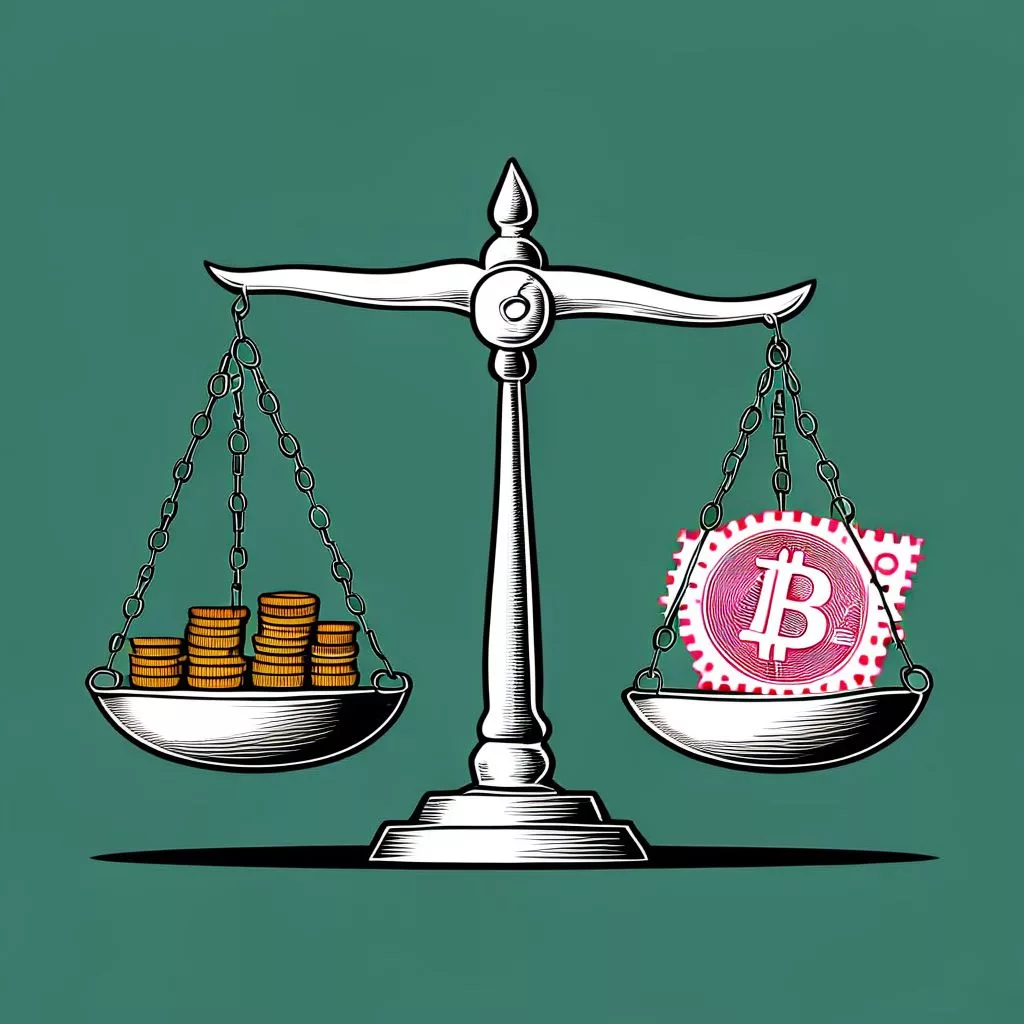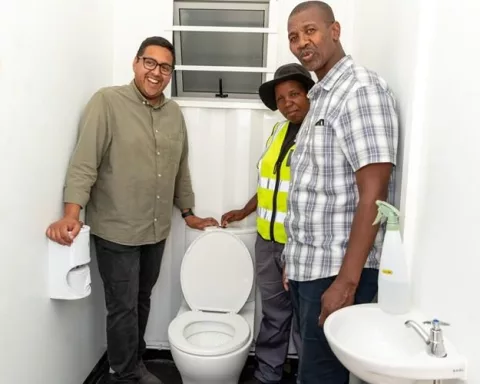South Africa is in a heated fight over a planned increase in VAT (a type of tax), with opposition parties like the DA and EFF saying the government rushed the decision without proper steps. They argue this tax hike hurts everyday people, especially those already struggling, and breaks important constitutional rules about how budgets should be made. The courts are now involved, as these parties demand the VAT rise be stopped until Parliament follows the right legal process. This battle isn’t just about money—it tests the heart of South Africa’s democracy and who truly holds power over such decisions. Millions of citizens watch closely, hoping for fairness and accountability.
What is the controversy surrounding South Africa’s VAT increase?
South Africa’s VAT hike faces legal challenges from opposition parties like the DA and EFF, citing procedural flaws and constitutional breaches. The dispute centers on whether Parliament followed proper legislative processes, with concerns about the VAT’s impact on ordinary citizens amid economic strain and democratic accountability.
Parliament in Turmoil: Legal Challenges Spark a National Reckoning
South Africa’s political landscape has erupted with urgency as opposition parties move to block a looming Value Added Tax (VAT) hike set for May 1. The Democratic Alliance (DA), the country’s leading opposition party, has turned up the heat with a court challenge designed to stop the VAT increase in its tracks. This comes during a period marked by economic strain and political spectacle, drawing comparisons to historic parliamentary confrontations elsewhere—moments when legislative disputes signaled deep shifts in the social contract.
At the center of the action stands Helen Zille, the DA’s Federal Council Chairperson. Zille’s presence fills the Western Cape High Court, underscored by a detailed affidavit that pieces together a rapid-fire sequence of events. According to her account, the VAT increase appeared embedded within a broader Fiscal Framework. The Finance Portfolio Committee approved the measure on April 1, with Parliament giving its assent a day later. These swift developments left the DA alarmed, fueling their resolve to contest what they view as a procedural and economic misstep.
Zille pushes the argument that Parliament’s approval, absent meaningful consultation or legal rigor, cannot justify a VAT hike of this scale. She observed a shift in the Finance Minister’s stance following the DA’s legal filing on April 22. The Minister responded by announcing his intention to revisit the Fiscal Framework—promising a new Bill that would exclude the controversial VAT increase. However, for Zille and the DA, these reassurances mean little without concrete legislative action, especially with the original fiscal provisions still technically in play.
The Legal Battlefield: Scrutiny, Procedure, and Power Plays
Helen Zille’s approach hinges on the belief that press statements and promises from government officials offer no firm safeguard against abrupt tax policy changes. She insists that only a formal, lawful amendment of the Fiscal Framework can halt the VAT increase. Until Parliament debates and passes the new Bill, the original framework—including the VAT hike—remains binding. The DA’s legal plea seeks a clear judicial directive, compelling the government to pause any VAT increase until Parliament follows due legislative process.
This legal contention draws on South Africa’s own constitutional history, recalling the post-apartheid efforts to ensure balanced governance. The country’s constitution was crafted to create a strong system of checks and balances—preventing any branch of government from unilaterally imposing economic decisions without parliamentary oversight. Zille’s case underscores the importance of these principles, presenting the VAT dispute as both a matter of economic justice and democratic integrity.
Meanwhile, the Economic Freedom Fighters (EFF) have entered the fray with their own legal offensive. Their court documents go beyond the VAT increase, attacking the validity of the entire budget process. In a move that echoes the spirit of early 20th-century socialist reformers, the EFF calls for a wholesale restart of the 2025 budget process. They frame their demand as essential to restoring “constitutional integrity” in Parliament, insisting that only a total reset can bring the budget back into compliance with the country’s foundational laws.
Constitutional Arguments and the Cost to Ordinary Citizens
The EFF’s position draws heavily from the Constitution and the Money Bills Amendment Procedure and Related Matters Act. They argue that the current Fiscal Framework and revenue proposals breach these statutes, fundamentally undermining both legality and legitimacy. Their official statement is striking: “South Africa has no lawful budget. The only legitimate and practical way forward is a full reset of the 2025 budget process to re-establish constitutional compliance and fiscal legitimacy.” This assertion brings a tone of constitutional crisis into parliamentary debate, signaling just how high the stakes have become.
Ordinary South Africans, meanwhile, feel the immediate impact of any VAT adjustment. For many, VAT is not an abstract policy but a tangible part of daily life. It silently increases the price of basic goods—bread, milk, transportation—touching every household and particularly affecting those living on the margins. In a nation still grappling with vast inequality, even a percentage point rise in VAT can mean the difference between getting by and going without.
Both the DA and the EFF emphasize the human cost of fiscal policy decisions. Zille and her allies point to the hardship a VAT hike would impose on the country’s poorest residents, linking their legal strategy to a tradition of social advocacy. The EFF, too, highlights the moral dimensions of the budget, arguing that fiscal decisions should reflect the broader interests and needs of the population, not just the calculations of a few government officials. Their call for a parliamentary reset hearkens back to South Africa’s constitutional debates of the 1990s, where lawmakers sought to convert aspirations of justice and equality into enforceable policy.
The Broader Context: Historic Echoes, Democratic Debate, and the Road Ahead
These legal battles unfold against a backdrop of uncertainty. South Africa’s post-pandemic recovery remains fragile, with unemployment—especially among the youth—persistently high. Inflationary pressures, driven by both global disruptions and domestic challenges, add to the sense of unease. In this climate, the fight over VAT and the Fiscal Framework becomes much more than a technical dispute; it becomes a proxy for bigger questions about who shoulders the burden of change and how government policy should serve society.
History provides important perspective. South Africa’s VAT showdown mirrors global episodes where tax changes ignited widespread unrest. The 1980s saw riots against Margaret Thatcher’s poll tax in the United Kingdom, while the “gilets jaunes” protests in France erupted over increases in fuel taxes. In each case, fiscal reforms sparked debates about fairness, representation, and the core meaning of citizenship.
Artists, satirists, and cartoonists have long responded to such moments of upheaval. In 18th-century England, William Hogarth’s engravings mocked tax collectors and corrupt elites, offering sharp commentary on public discontent. In modern South Africa, cartoonists like Zapiro have used their craft to translate intricate legal debates into accessible, thought-provoking images that reflect and shape public opinion.
Despite the courtroom drama and political maneuvering, the gears of governance continue to turn. Committees convene, legal teams prepare arguments, and judges weigh their decisions. But the questions raised cut to the core of South African democracy: Who decides how much ordinary people must contribute? What processes ensure that fiscal policy remains accountable to citizens rather than detached technocrats?
The current standoff over VAT is more than a fight over numbers; it is a defining chapter in South Africa’s ongoing struggle to balance economic necessity with democratic values. The coming weeks will reveal whether Parliament, the courts, and the public can shape a fairer, more transparent path forward—or whether this episode will become just another entry in the long history of contentious tax reforms. As the nation watches closely, the outcome will influence not only the law but also the lived realities of millions of South Africans.
What is the main issue behind the VAT increase controversy in South Africa?
The controversy revolves around a planned increase in the Value Added Tax (VAT) that the South African government approved rapidly, without what opposition parties like the Democratic Alliance (DA) and Economic Freedom Fighters (EFF) consider proper legislative procedure and consultation. These parties argue the hike disproportionately harms ordinary citizens, especially those already struggling economically, and that the process violated constitutional rules regarding budget approval and parliamentary oversight.
Who are the key political players involved in opposing the VAT hike?
The primary opposition comes from the DA and the EFF. Helen Zille, the DA’s Federal Council Chairperson, is leading legal challenges emphasizing the need for proper parliamentary debate and adherence to legal procedures before implementing the VAT increase. The EFF has also launched a legal challenge, but their demands go further, calling for a complete reset of the 2025 budget process to restore constitutional compliance and fiscal legitimacy.
What legal arguments are being used to challenge the VAT increase?
Opponents argue that Parliament did not follow the necessary constitutional and legislative procedures, particularly the Money Bills Amendment Procedure and Related Matters Act. They claim the Fiscal Framework that includes the VAT hike was approved too hastily and without sufficient consultation or debate, rendering the budget process unlawful. The legal challenges seek a court order to halt the VAT increase until a lawful and transparent legislative process is followed.
How does the VAT increase affect ordinary South Africans?
An increase in VAT raises the cost of everyday goods and services such as food, transport, and household items, putting additional financial pressure on low- and middle-income households. Since VAT is a consumption tax applied broadly, even a small percentage increase can significantly impact people living paycheck to paycheck, exacerbating inequality and economic hardship in a country already facing high unemployment and inflation.
Why is the VAT dispute significant for South Africa’s democracy?
This dispute highlights fundamental questions about democratic governance, transparency, and accountability. It tests whether fiscal decisions can be made without proper parliamentary oversight and public consultation, or if such processes are essential to protecting citizens’ rights. The controversy underscores the constitutional principle of checks and balances, emphasizing that the government must operate within legal frameworks to maintain public trust and legitimacy.
What are the possible outcomes and wider implications of this political and legal battle?
The immediate outcome could be a delay or reversal of the VAT increase if courts rule in favor of the opposition’s legal challenges. More broadly, this battle may lead to reforms in how South Africa handles budget approval and tax legislation, reinforcing democratic practices. It also serves as a reminder of global struggles where tax policy ignited public unrest and demands for fairness. Ultimately, the resolution will shape not only fiscal policy but also public confidence in the government’s commitment to equitable economic governance.








